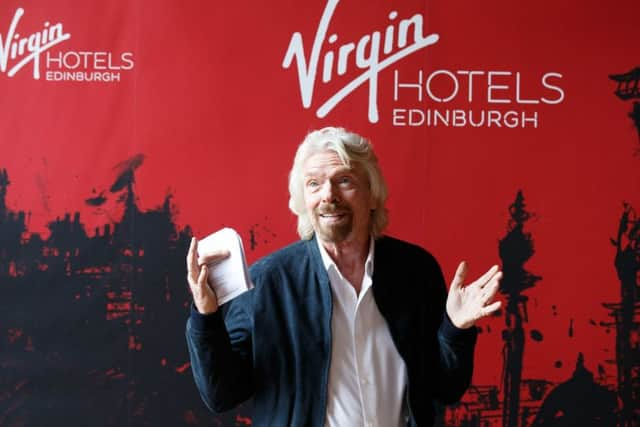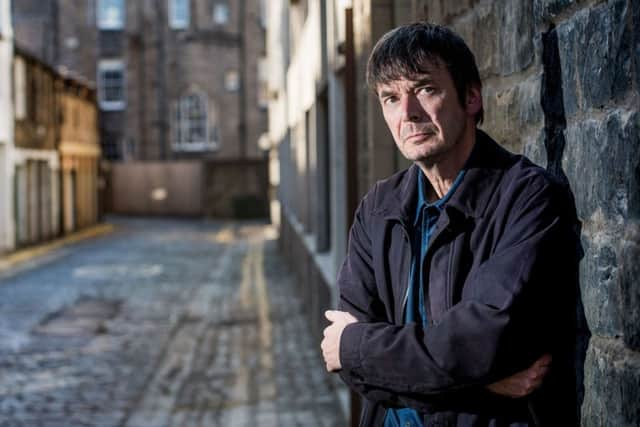Scots writers protest against Richard Branson's Edinburgh hotel plans
Alexander McCall Smith, Ian Rankin, Jackie Kay and John Byrne are among 19 signatories to a letter to the Times, accusing the council of indulging in a cynical exercise in “asset-stripping” and betraying future generations.
The writers also criticised the council for abandoning earlier proposals to expand the Carnegie library and added that the original building had been a cornerstone of the city’s intellectual life since its foundation in 1890 by Andrew Carnegie.
Advertisement
Hide AdAdvertisement
Hide AdThe historic India Buildings at the top of Victoria Street will be coverted in to 225-room, 11-storey hotel, which will reportedly block an estimated 82 per cent of natural light from the library.


Virgin founder Sir Richard Branson endorsed the project while visiting the site of the hotel this week. He said he had selected Edinburgh for his new brand because the city had a “big gap in the market” for high-end five-star hotels.
The protesters are also concerned that the famous Edinburgh Room, closed as pressure on space intensified, may never reopen.
Sir Richard, who hosted a party for industry leaders to herald the start of work on what will become the first Virgin Hotel in Europe when it opens in 2020, insisted the development would respect the heritage of the site.


He revealed that up to 300 jobs will be created in the hotel, which will contain at least four bars and restaurants and is expected to generate £5 million for the local economy.
Sir Richard entered Edinburgh’s increasingly heated tourist tax debate days after a new poll found three-quarters of small businesses in the city were opposed to the idea. Asked about the prospects of Edinburgh becoming the first destination in the UK to ask visitors to pay an additional levy, Sir Richard said: “There is a problem with any tax where an individual city is singled out. The government would have to watch it very carefully. “There is a danger that if it is done in one city [Edinburgh] you could have everyone going to Glasgow. If you’re going to do it, it would be better if it was done nationwide. “It would also have to genuinely support the tourism industry and not just disappear into a general pot.”
Sir Richard was visiting Edinburgh just days after a long-running heritage watchdog urged the city council to introduce an “immediate moratorium” on new hotels in the Old Town over concerns that they are putting its historic character and vitality “seriously at risk.” Earlier this year an official report warned that parts of the Old and New Towns were struggling to cope with the huge influx of visitors during peak periods. However Sir Richard said: “I don’t think a city can have too many tourists. It can be slightly overwhelming if you have floods of people coming off cruise ships. “From what I can tell, the amount of tourists Edinburgh gets is manageable.”
Depute council leader Cammy Day praised the hotel development, saying the plans have been “developed very much with the local area in mind” and “have been endorsed by key heritage groups.”
Alan Taylor, the editor of Muriel Spark’s collected works and a former reference librarian in Carnegie building said the council “didn’t know what their heritage is”.
